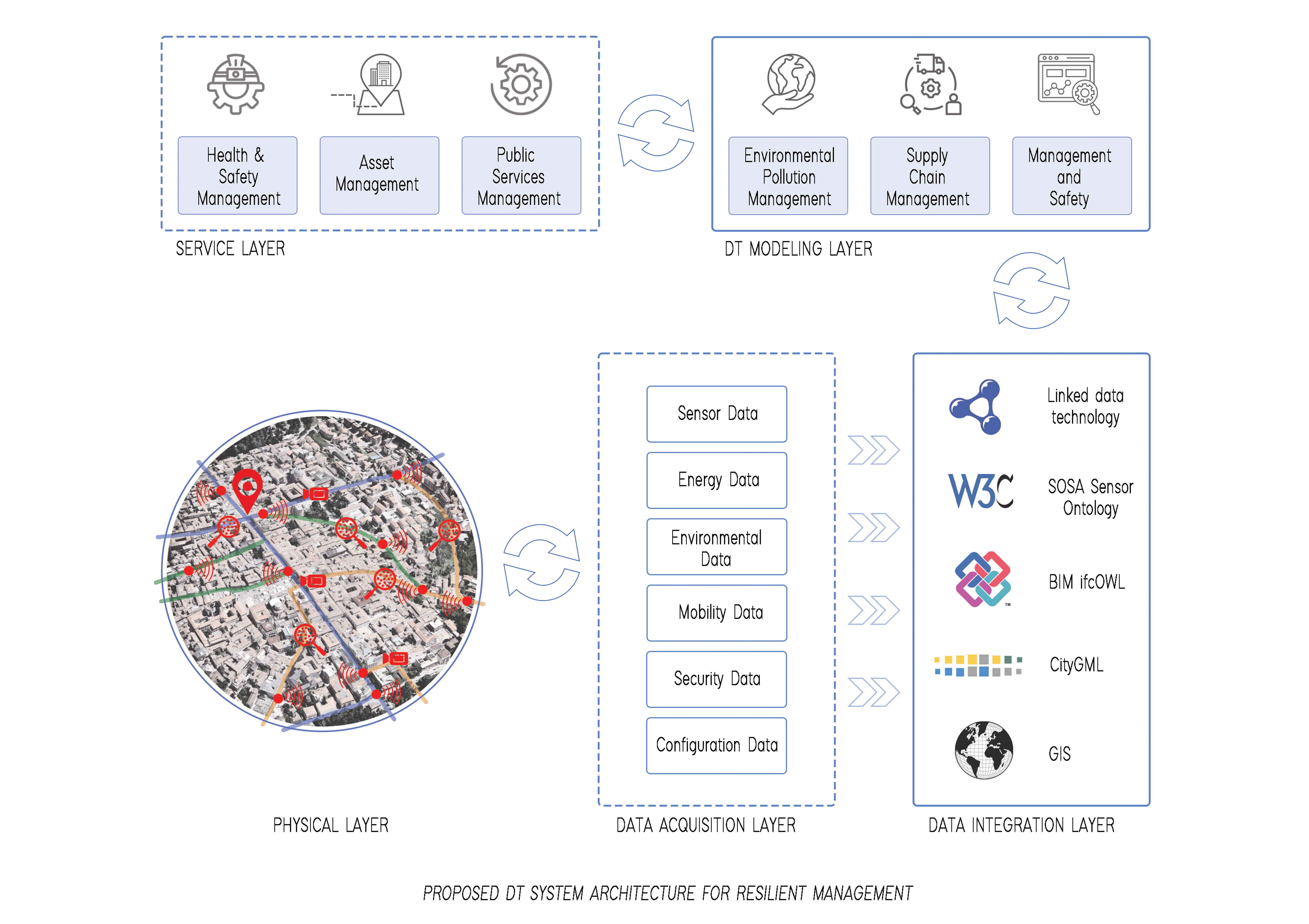
Titolo: Digital Twin development for the resilient management of minor historical centres
Acronimo: DiTHiCe
Principal Investigator: Marianna Rotilio
Unità di ricerca coinvolte: Università degli Studi di L’Aquila (coordinatore), Politecnico di Torino, Università Politecnica delle Marche, Università degli Studi di Firenze
CUP: E53C24002740006
Descrizione:
Developing resilient cities is a strategic goal, made even more evident by recent events, not only in terms of dealing with chronic stresses such as social, economic and financial ones, but especially with emergency situations. Human settlements can be considered complex systems based on relationships between physical elements, such as density, morphology, accessibility, infrastructure and non-physical elements, such as relationships, citizenship rights, digital networks. When a disaster occurs, the degree of complexity is amplified exponentially and traditional urban management systems, based on classic paradigms, may be completely ineffective. This is particularly true for minor historical centres, which are often on the edge of decision-making centres, inherently non-resilient and hostile to any large-scale recommissioning program. Therefore, new management approaches are required to implement safety, resilience and sustainability. In this context, the challenge that research must face is to develop a system that allows to be supported in the management of minor centres by eliminating the assumption of full predictability, consequently introducing tools that allow the so-called reactive "conduction" through which to cope with unpredictable situations. A viable approach to address this challenge is that of digital cloning of physical assets. This allows their relevant behavior to be modeled in a manner suitable for execution by feeding them in real or near real time with data retrieved from the physical world. This approach known as "Digital Twin Modeling" (DT) allows us both to monitor situations, perform analysis and generate insights to predict and optimize its performance and to reflect this knowledge back to it. DT is able to develop a kind of collective intelligence through a large number of heterogeneous agents that work following stigmergic mechanisms. The resulting data highlight emergent situations and solutions that we cannot predict when we examine each aspect in isolation. In the research project, DT is exploited as an adaptive system for minor historical centres, as a support to optimize reconstruction processes with a focus on safety responsive management, in order to implement resilience from a smart city perspective. Following this vision, the research project aims to realize a first extensive framework that allows the implementation of digital twins in urban settings by combining different technical and management skills. DiTHiCe will focus on three issues namely "Construction site management and safety", "Management of environmental pollution in the urban area" and "Supply chain management". Subsequently, the project will also realize a first proof of concept by implementing and integrating three different DT demonstrators in the laboratory.






